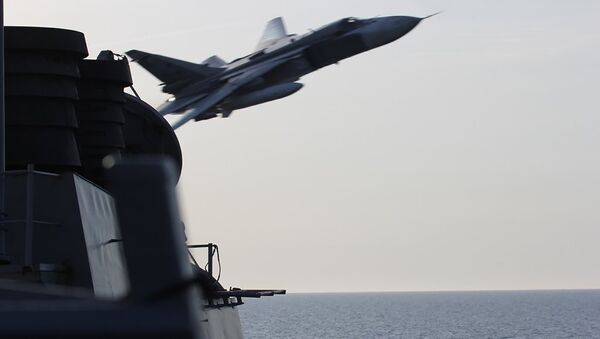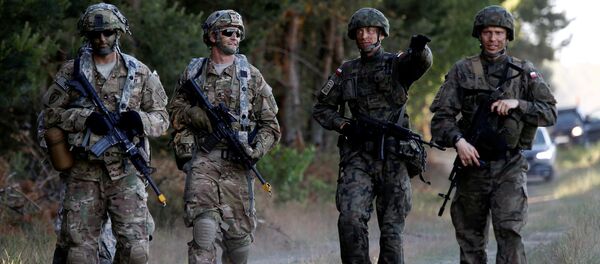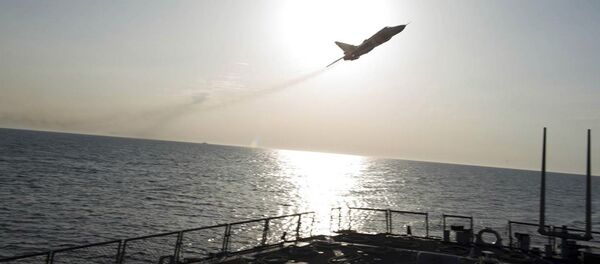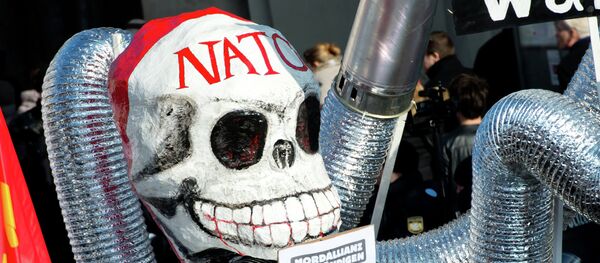The suggestion was made by Russia's envoy to NATO Alexander Grushko at the NATO-Russia Council, a forum which brought together Russia and the 28 NATO ambassadors earlier in July.
Grushko suggested that Russian pilots could turn on their cockpit transmitters, known as transponders, if alliance planes did the same.
“We proposed in absolutely practical terms that the issue be discussed in Moscow at the end of August or in early September, and we invited NATO military experts to come to the Russian capital for this purpose. There has been no response so far," Andrei Kelin said on Wednesday.
"And I perfectly understand that there is going to be a complex struggle between the so-called frontline states, which are seeking to make sure that our military contacts are not resumed, and much more soberly-thinking people believing that this is simply objective reality,” the diplomat added.
“NATO is a military alliance and the absence of an adversary is a serious blow to its mere existence, primarily in terms of financing,” he told Sputnik.
“The existence of some tension is very useful for it. And in case the problem is settled a logical question will arise: is it really necessary to allocate so much funding to the alliance,” he explained.
It will then need to prove its own relevance and value.
It is logical therefore, he noted, that NATO will take the side of the frontline states in this issue.
The analyst further explained that the Baltic States are the major opponents to any agreements on the security in the region.
“The Baltic States are not interested in any technical issues whether to switch on or off the transponders, but are rather interested in military and political aspects in pursuing their only goal that “the Russians should not fly over the Baltics,” the expert said.
However, if these countries get engaged in the negotiations on the issue of switch-on of the identification systems, they will admit the necessity of these flights. And it is unacceptable for these states.
Dmitry Zhuravlev nevertheless suggested that this issue could be resolved only after the US presidential elections.
“Only the US can really have an impact on NATO member states and the Baltic countries. However the US is not voicing its stance on the issue as it is fully absorbed in the upcoming elections,” he said.
The expert further explained that its stance will depend on who eventually comes to office: it will be one position if it is Republican nominee Donald Trump and it will be an absolutely different one if it is Democratic nominee Hillary Clinton.
Therefore, American diplomats are unwilling to voice their positions ahead of time, meaning that the transponder issue will be pending until the elections, the analyst suggested.





